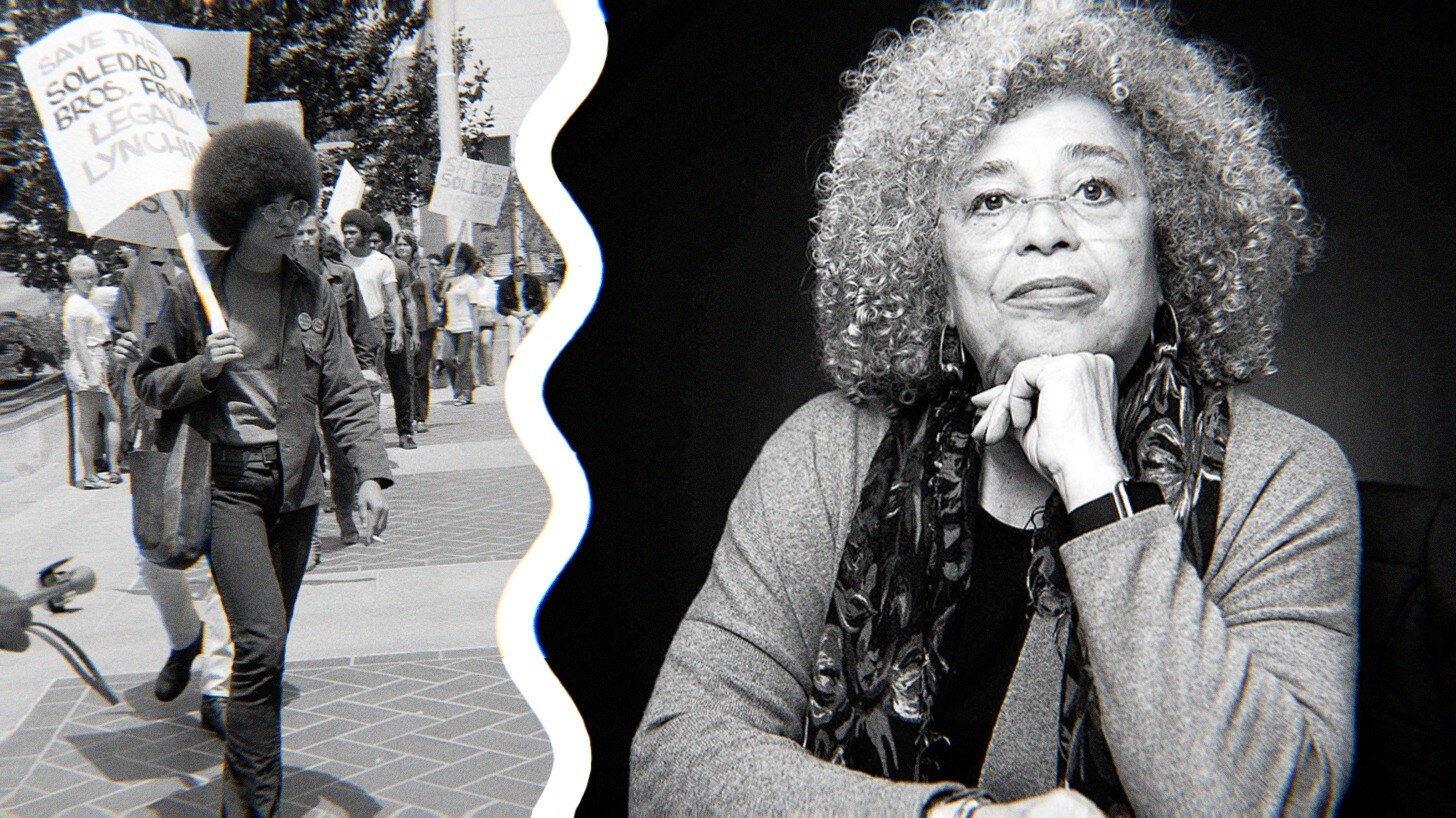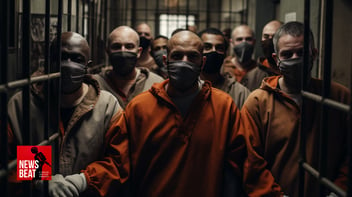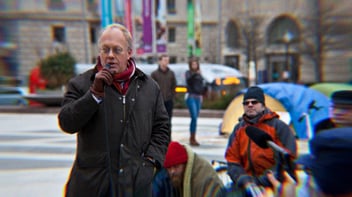Progressive Spotlight: Angela Davis.
Scholar. Black liberation icon. Prison abolitionist. Feminist. Black Panther Party member. Radical thinker.
 Image Description: Two photos of Angela Davis; one from 1970 where she is protesting on behalf of the Soledad brothers, and the other a recent headshot, where she rests her chin on her fist.
Image Description: Two photos of Angela Davis; one from 1970 where she is protesting on behalf of the Soledad brothers, and the other a recent headshot, where she rests her chin on her fist.
Angela Davis is among the most recognizable and revered freedom fighters of the last half-century. Her vocal criticism of America’s mass incarceration regime, our rigged economic system, and oppressive institutions that breed systemic racism have earned her legendary status among leftists.
Of course, Davis’ uncompromising radicalism also rankled the establishment and created her share of enemies, including in law enforcement. In the summer of 1970, J. Edgar Hoover’s FBI placed Davis on the agency’s notorious “10 Most Wanted” list after she was charged with murder, kidnapping, and conspiracy in an infamous courthouse kidnapping in the “Soledad Brothers” case—making her only the third woman in American history at the time to be placed on the list. “Consider possibly armed and dangerous,” declared the flyer below two photos of Davis and a description of the then-26-year-old activist.
The charges, of which she’d eventually be acquitted two years later by an all-white jury that deliberated for 13 hours, stemmed from a shootout in which a judge (among the hostages taken from the courthouse) and three others were killed. Although Davis wasn’t present, she was charged in connection with the kidnapping and fatal shootout with police, claiming she purchased the weapons.
“Miss Davis had been seen several times recently in the company of young [Jonathan] Jackson who, witnesses said carried the weapons into the courtroom,” The New York Times wrote in its coverage of the incident in which it repeatedly cited Davis’ Communist Party connections.
Already a prominent figure after successfully fending off attempts to fire her from UCLA, seemingly because of her Communist Party association, the accusations against Davis made her something of a global sensation, with her image adorned on buttons and pamphlets amid outrage over her arrest. Advocates embarked on an international “Free Angela” campaign while notable artists—John Lennon among them—and activists came to her cause.
In November 1970, James Baldwin penned an open letter to Davis in which he noted “The American triumph—in which the American tragedy has always been implicit—was to make black people despise themselves.”
“The enormous revolution in black consciousness which has occurred in your generation, my dear sister, means the beginning or the end of America,” he said. “Some of us, white and black, know how great a price has already been paid to bring into existence a new consciousness, a new people, an unprecedented nation. If we know, and do nothing, we are worse than the murderers hired in our name.
“If we know, then we must fight for your life as though it were our own—which it is—and render impassable with our bodies the corridor to the gas chamber. For, if they take you in the morning, they will be coming for us that night.”
Davis rose to global fame during the Black liberation movement. In a video from her days with the Black Panther Party, Davis was quoted as saying: “We are convinced that today marks the beginning of a new era in the movement in this country.”
Davis has never stopped standing up against injustice and oppressive institutions. She remains one of the foremost thinkers on the prison abolition movement, which decades ago counted prominent academics among its champions. As a founding member of the abolitionist group Critical Resistance (CR), she helped build the infrastructure for the anti-prison industrial complex movement. Today, CR is among the most recognizable abolitionist organizations in the country, helping educate people about mass incarceration, organizing direct action campaigns, and publishing a newspaper that’s delivered to incarcerated people across the United States.
Born during a period of racial terror—her hometown in Alabama was dubbed “Dynamite Hill” because of KKK bombings that terrorized the community—Davis remains as outspoken as ever on everything from policing and prison harms to systemic racism and the exploitative nature of capitalism.
“Capitalism is racial capitalism, and I think we need to confront that today and move in the direction of envisioning and hopefully building a socialist society,” she recently said.
Davis has also long supported Palestinian rights, which has often been tied to the Black liberation movement. As Davis recently wrote:
“My own lifelong sense of solidarity with Palestine is rooted in those experiences of my young political life. I learned the moral value of political solidarity and what it means to express that solidarity not only as a minority position within a larger progressive community but also through a deep identification with those who have been designated as enemies. Solidarity is never entirely straightforward, but in this situation, it requires us to reach beyond simplistic explanations that attribute positions of moral rectitude to one side and utter depravity to the other. Solidarity commands us to recognize the fallacious either/or construction that effectively forbids the proximity of positions of solidarity for Palestine and of deep and heartfelt condemnations of antisemitism.”
As her comments on Gaza underscore, Davis understands better than most that inequities within seemingly disparate communities are often connected. And to address the root causes of systemic oppression, we need to collectively identify the enforcer of so much suffering: capitalism.
Still serving as Distinguished Professor Emerita at UC Santa Cruz, the lifelong activist and public intellectual has plenty more to give to younger generations. Rising to fame with the failed attempt to oust her from UCLA more than 50 years ago, Davis continues to be a force. As she’s shown, she’ll never stop fighting for a more equitable society.
Image Sources
- Ray Graham, Los Angeles Times, CC BY 4.0, via Wikimedia Commons. Changes were made.
- Oregon State University, CC BY-SA 2.0, via Wikimedia Commons. Changes were made.
Rashed Mian is the managing editor of News Beat. Mian previously covered civil liberties and the Muslim American community for Long Island Press. Mian graduated with a degree in journalism from Hofstra University. Mian is interested in under-reported stories that impact disenfranchised communities as well as issues related to civil liberties.


